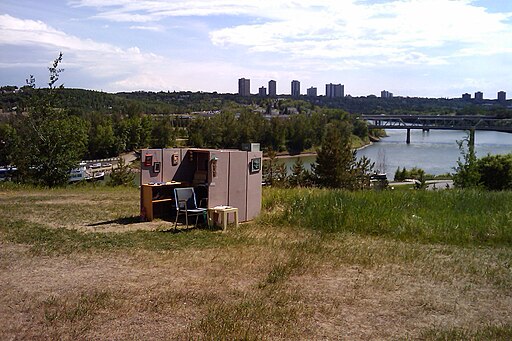Newstex, where I work, has no physical offices, no data centers, no headquarters, not even a corporate mailing address (unless you consider our owners home address). We believe that you get more work done when not distracted by an office environment. We're entirely about mobility and being able to work not just from home, but from wherever you physically happen to be at the moment. I've worked in an office before, I've worked in a data center before, and I've always felt that I get a significantly higher productivity by working remotely.
As a developer, however, it can become difficult when bringing on new people into a completely different form of workplace. I've discovered that it is incredibly hard to find people that are ready for working in a remote environment. If you're thinking about taking up a remote working job, here's a few helpful tips to keep in mind.
As a developer, however, it can become difficult when bringing on new people into a completely different form of workplace. I've discovered that it is incredibly hard to find people that are ready for working in a remote environment. If you're thinking about taking up a remote working job, here's a few helpful tips to keep in mind.
Working Remotely doesn't imply working from home
This is by far the biggest issue most people have. Just because it's a remote working situation doesn't mean that you have to work out of your home. Make sure you have a laptop, iPad, iPhone whatever you need to make sure you can get out of the house in order to work. While most of your "head down" work may be in one physical place, it can often be beneficial to get out and go someplace different to work. For instance, the other day the Rochester RedWings were having an 11am baseball game, so I grabbed my laptop and iPad and went to work from there. I've also gone out to coffee shops with free wifi for lunch and working, and even libraries. It's incredibly useful to be able to get out of the house every once in a while so you don't feel like you're stuck in one place all the time. Several people I know actually rent offices in places such as Coworking Rochester. These are office like environments specifically set up so you can get out and have someplace physical to go every day to work (or just days when you really need to). The best part about working remotely is that you can literally go wherever you want and still be on the clock.
Not having to go into an office adds value
There are many factors in how you evaluate a particular position at a company. The most obvious is how much you're being compensated. What is often overlooked is flexibility and overal enjoyment of your work. If you can make double what you're making now, but it makes you entirely miserable, is it really worth it? What if you don't make quite as much, but you actually enjoy doing what you're doing, and it leaves you with enough free time and flexibility that you can also have a life outside of work? That's exactly what I have at Newstex when working remotely. Yes, I work a lot occasionally when things need to be done, but I don't have any travel time, and I can often fit in other real life things while still working. If I want to travel out to California and spend a month there visiting and doing touristy things, as long as I get my work done I can do that even without taking any time off. Feel like traveling across europe? Great just bring a laptop and cell phone and you're all set. This adds value to the job, it increases my effective pay since it reduces costs that I would otherwise normally have.
Communication is Key
This goes with all jobs, but with remote working jobs, even more so. Constant communication is absolutely key. The most important aspect here is complete and total transparency. If you're struggling with something be honest and let others know when you need help. Don't be afraid to spend hours each day on the phone or in a chat room talking over issues. It's important that everyone knows how things are going, since they can't simply walk by your cubicle to see if things are going ok.
Even when things are going well, it's important to keep having constant updates with the rest of your team. If you go completely quiet, that's when your manager should get worried and start to wonder if things are wrong. It's important to keep up communication, even if it is just mindless at some times, just so everyone knows that you're still around. Don't be afraid to go off-work topics either. For example today we spent a good 30 minutes talking about old movies as a development team. It's one of those things that you do at any average office, and making sure to bring in some of the "watercooler" type of talk is important to a virtual office as well. We use a tool called FlowDock to achieve this (it also has great integration with many other systems we use such as Chili).
Jobs vs Careers
This is a little generic, but often another big thing that I run across. Many people in todays market appear to be focused simply on a "Job" instead of a "Career". The key difference is that a job can end at any point, and doesn't imply advancement. A career on the other hand, implies something that you might stick with and build. Building a website is a job, building an entire technological empire is a career.


Comments